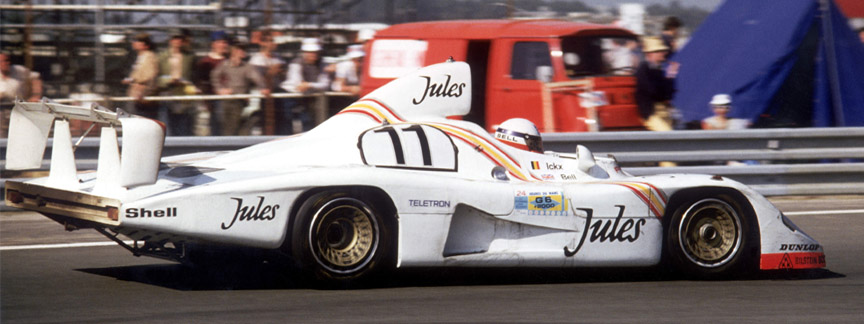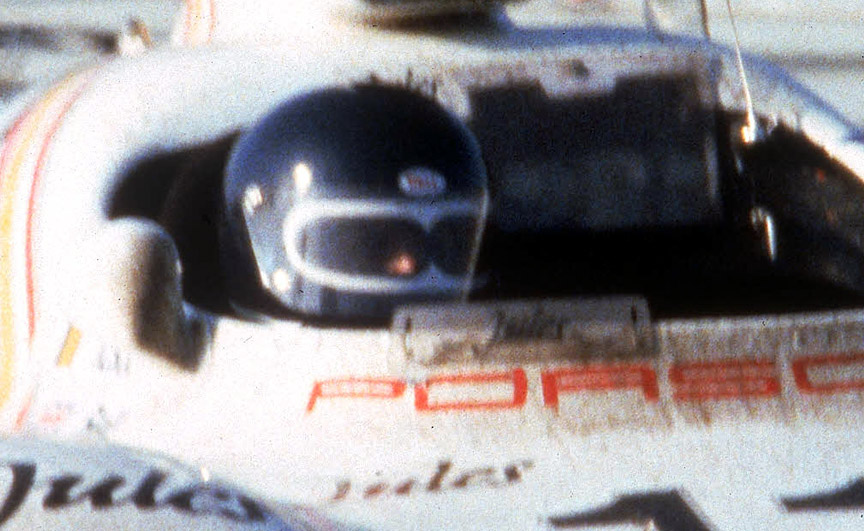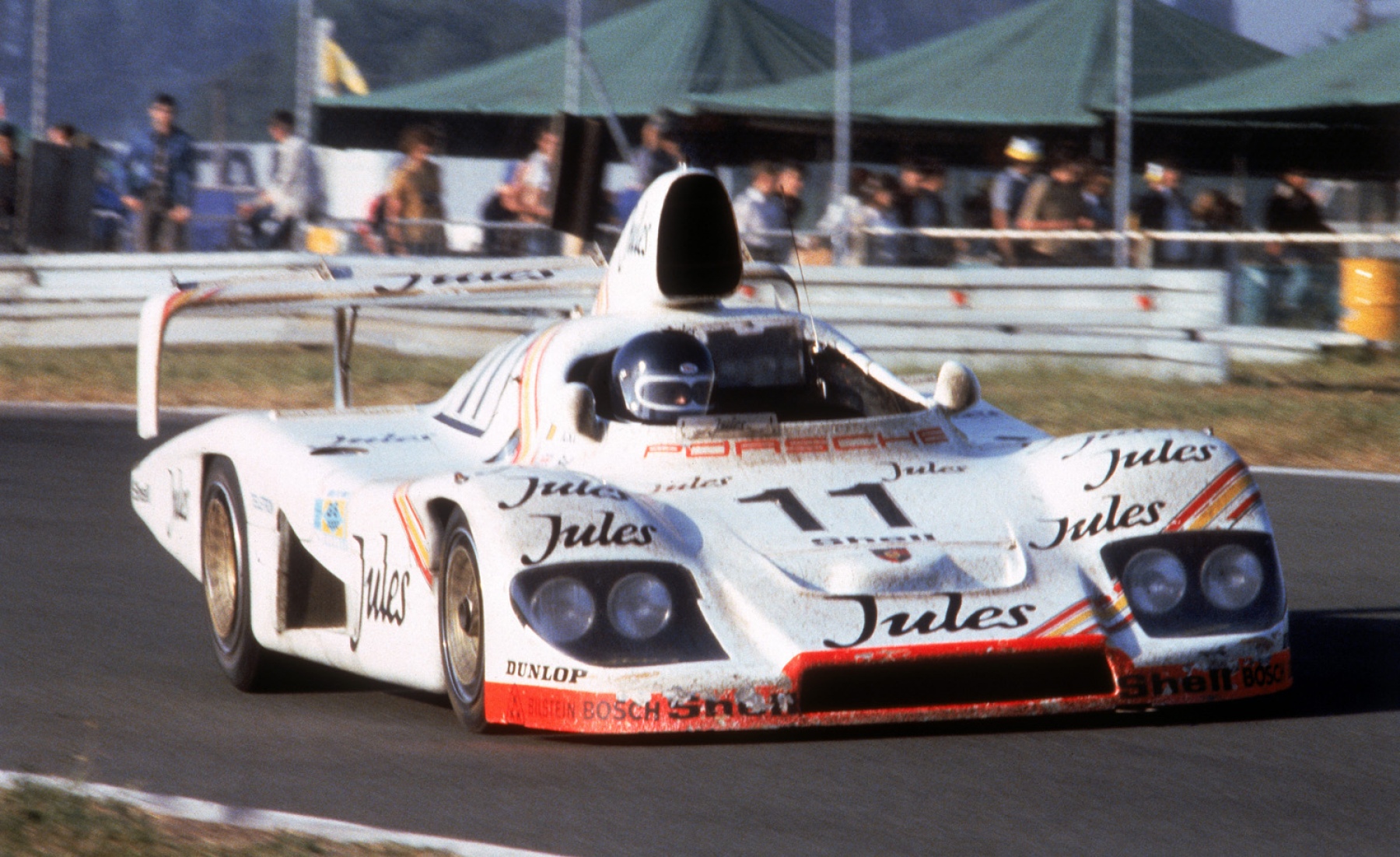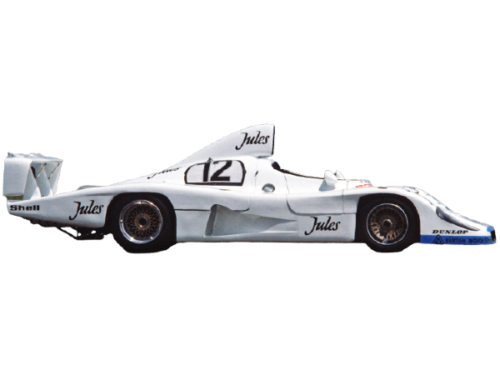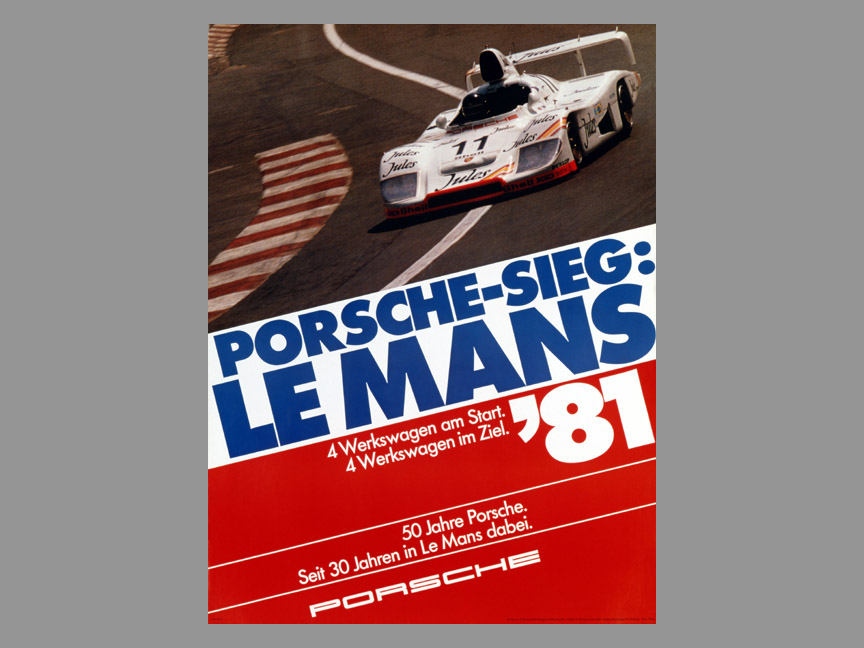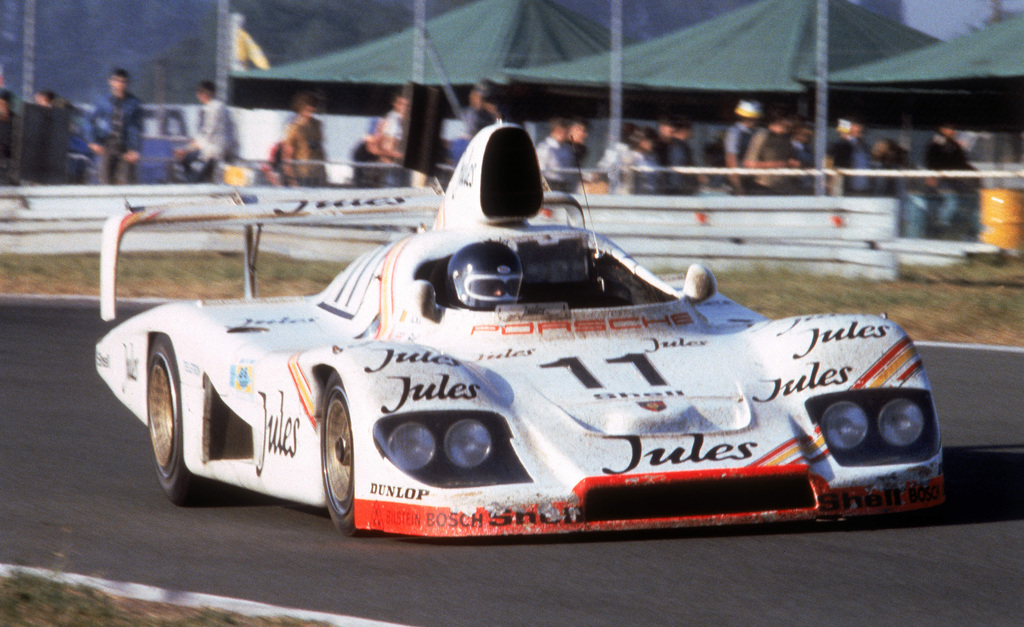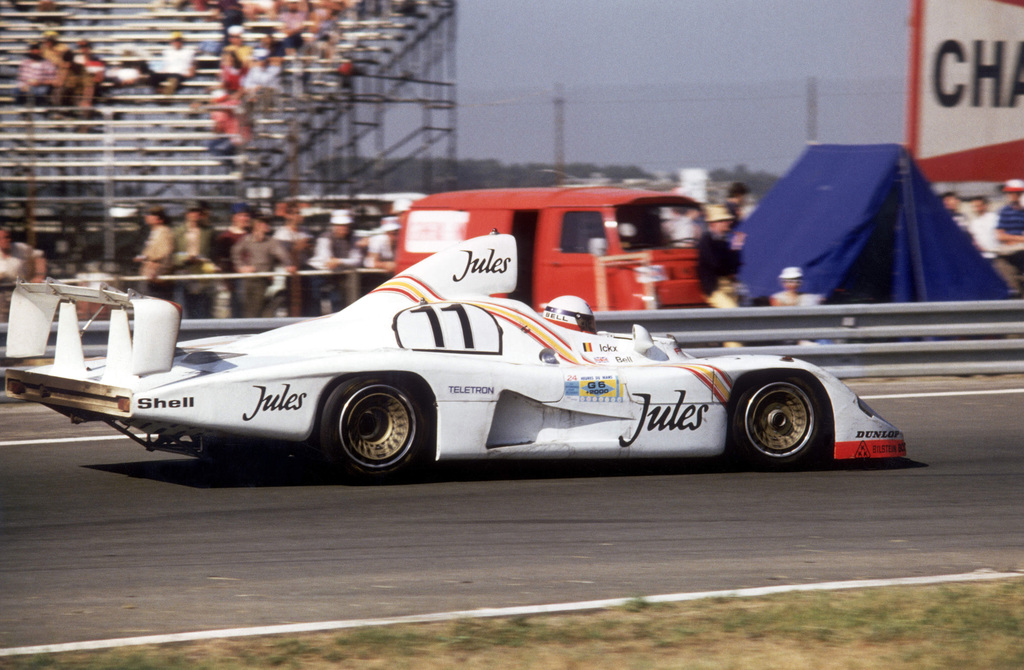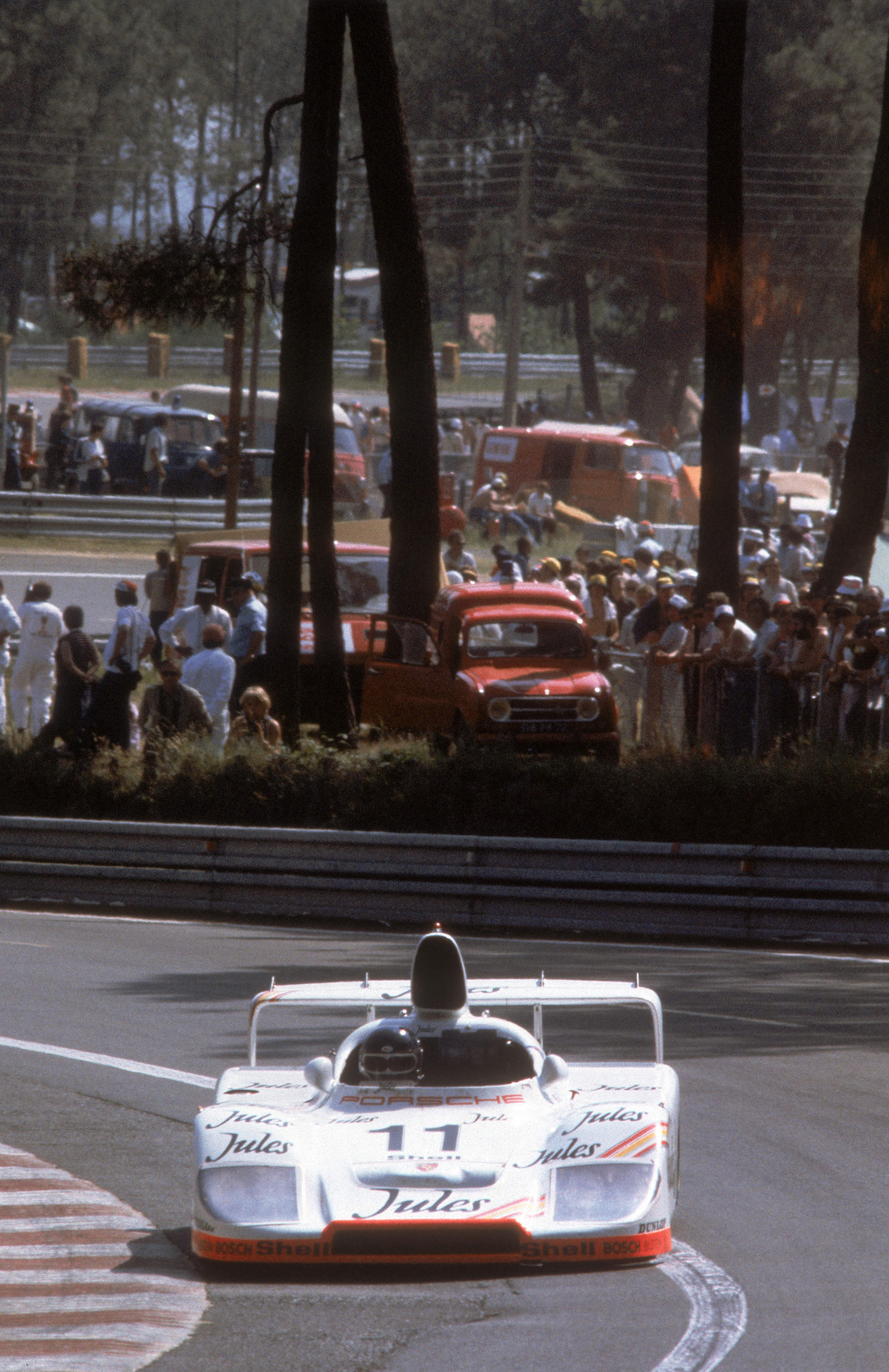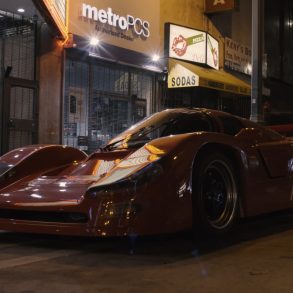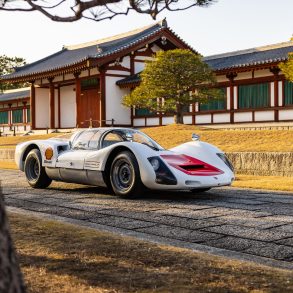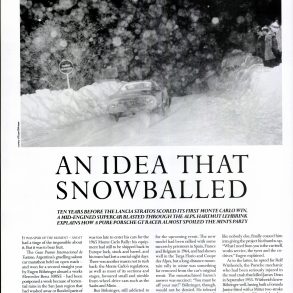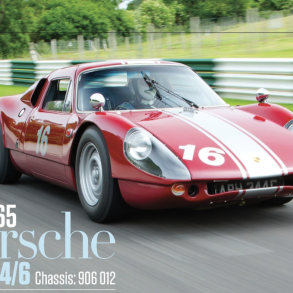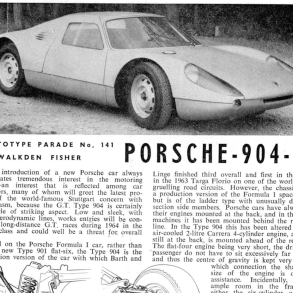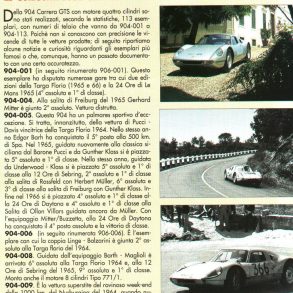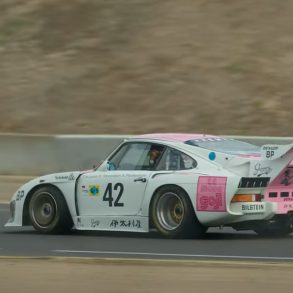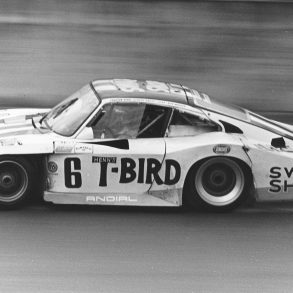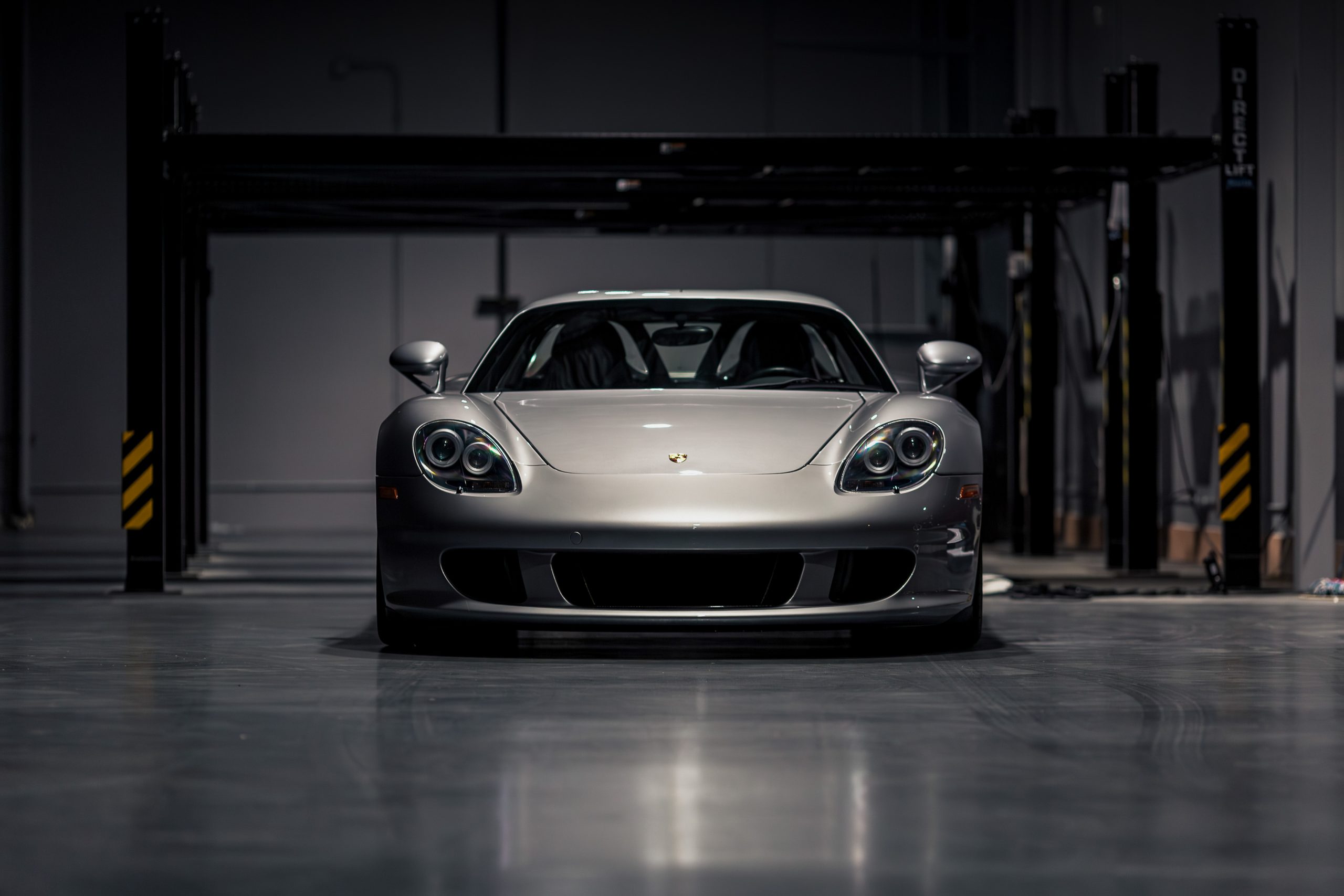Porsche 936/81 (1981)
The #11 Porsche 936/81 (936-003) started the 1981 Le Mans from pole position and won the race driven by Jacky Ickx and Derek Bell. All the factory built 936 had now won Le Mans: chassis 002 in 1976, 001 in 1977 and 003 in 1981.
The #12 Porsche 936/81 (936-001) of Jochen Mass, Vern Schuppan and Hurley Haywood had technical problems and finished 42 laps down from the winner. The factory 936 cars were not used anymore after the 1981 Le Mans as the new closed-cockpit Group C Porsche 956 with the same engine was to be made for the next season.
After the three factory built 936 and the Joest built car, a fifth 936 spyder was created by Kremer Racing for the 1982 season. The car looked like 936/78 (or /81) except it didn’t have the NACA ducts on the sides as it was using the older air-cooled engine. For the 1982 season Kremer and Joest both also created their Group C closed racing cars using 936 parts. The Joest car was even called 936C, while the bodywork of Kremer’s rather cool CK5 didn’t look like 936 at all.
In Porsche’s Own Words
The decision to fight for overall victory at the 24 Hours of Le Mans in June 1981 is only made in spring. Fast action is imperative. Without much ado, the race department helps themselves to the 1976 and 1977-winning 936 Spyder from the Porsche Museum and gives the prototype a power make-over.
The four-valve twin-turbo engine, which was originally conceived for a U.S. racing programme, puts out almost 100 horsepower more than the motor from 1977. Weissach mates the engine with a durable four-speed gearbox.
Improvements are made to the aerodynamics including the wing and the airbox; the body grows in length by 25 centimetres. Because the traditional pre-test is cancelled in 1981, Porsche is forced to start at Le Mans without testing.
None the less, the race ends successfully: Jacky Ickx and Derek Bell win almost an hour ahead of the second placed competitor – right in time for the 50th anniversary of Dr. Ing. h.c. F. Porsche AG, and 30 years after Porsche’s first start at Le Mans.
